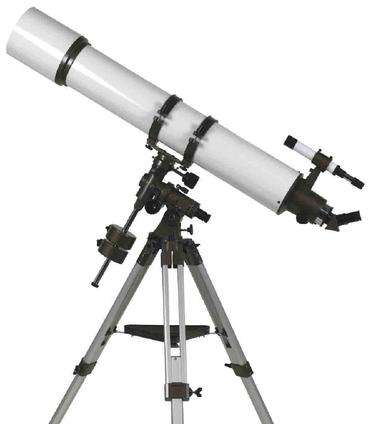 What do you see when you look at the Bible?
What do you see when you look at the Bible?
I recently ran across a quote from American pastor Phillips Brooks (1835-1893) that gave me a new way of thinking about the Bible. He said, “The Bible is like a telescope. If a man looks through his telescope, then he sees worlds beyond: but if he looks at his telescope, then he does not see anything but that. The Bible is a thing to be looked through, to see that which is beyond; but most people only look at it…”
When we stop staring at the Bible like it is some kind of a relic and discover the central message of the Bible, we will find that it has a practical, yet fascinating and breath-taking, message.
The Bible is an ancient book, and knowing where to start reading and how to make sense out of it can be daunting. Once you understand what the Bible is pointed at, though, it all begins to come into a captivating focus.
Before we talk about where the Bible “telescope” is pointed, let’s make sure, first of all, that we don’t get it pointed in a totally wrong direction.
For example, some people mistakenly think that God gave us a lot of rules in the Old Testament so that people could find their way to God by keeping them. Maybe you’ve heard someone say that God gave laws for us to keep, but because we failed to keep them, God had to come up with a plan “B.” Jesus had to come to earth so God could try another way to provide forgiveness. Nothing could be further from the truth!
I’ve heard a similar error from those who say that people in the Old Testament were saved by works and that people in the New Testament times are saved by grace. That’s not true, either. For example, the Bible states clearly that Abraham was saved by faith, not works. “Then [fusion_builder_container hundred_percent=”yes” overflow=”visible”][fusion_builder_row][fusion_builder_column type=”1_1″ background_position=”left top” background_color=”” border_size=”” border_color=”” border_style=”solid” spacing=”yes” background_image=”” background_repeat=”no-repeat” padding=”” margin_top=”0px” margin_bottom=”0px” class=”” id=”” animation_type=”” animation_speed=”0.3″ animation_direction=”left” hide_on_mobile=”no” center_content=”no” min_height=”none”][Abraham] believed in the Lord; and He reckoned it [or “credited it”] to him as righteousness” (Genesis 15:6). None of the Old Testament prophets saw any hope for salvation in doing good works.
Knowing that the Bible doesn’t give us rules to follow so we can be good enough to earn our way back to God, we’re ready for the important question: What is it all about? Where do we point the Bible telescope to see God’s wonderful revelations? In order to zoom in on the Bible’s main focus, the beginning is a good place to start.
After Adam and Eve rebelled against their loving and generous Creator, God announced to Satan that one day a deliverer would come from one of Eve’s descendants. This Deliverer would be wounded, but He would ultimately crush Satan (see Genesis 3:15).
Here is the key. The main spotlight of the Bible is on this Deliverer, this Someone who would come and pay for our sins. Later we learn that is Jesus Christ. That is why Peter said, “As to this salvation, the prophets who prophesied of the grace that would come to you made careful searches and inquiries, seeking to know what person or time the Spirit of Christ within them was indicating as He predicted the sufferings of Christ and the glories to follow” (1 Peter 1:10–11).
Notice that God told Abraham (the one who began the Jewish nation) that the deliverer would be one of his descendants. Paul explains: “The Scripture, [Genesis 12:3] foreseeing that God would justify the Gentiles by faith, preached the gospel beforehand to Abraham, saying, ‘All the nations will be blessed in you’” (Galatians 3:8).
Jesus said that the entire Old Testament Scriptures pointed to Him. “… all things which are written about Me in the Law of Moses and the Prophets and the Psalms must be fulfilled” (Luke 24:44).
From beginning to end, the Bible is all about Jesus. “God, after He spoke long ago to the fathers in the prophets in many portions and in many ways, in these last days has spoken to us in His Son, whom He appointed heir of all things, through whom also He made the world” (Hebrews 1:1–2).
Peter gives us this helpful summary: “But the things which God announced beforehand by the mouth of all the prophets, that His Christ would suffer, He has thus fulfilled. Therefore repent and return, so that your sins may be wiped away, in order that times of refreshing may come from the presence of the Lord” (Acts 3:18–19).
Don’t look AT the Bible; look THROUGH the Bible to Jesus.
We weren’t meant to be somebody
we were meant to know Somebody.
John Piper
[/fusion_builder_column][/fusion_builder_row][/fusion_builder_container]

